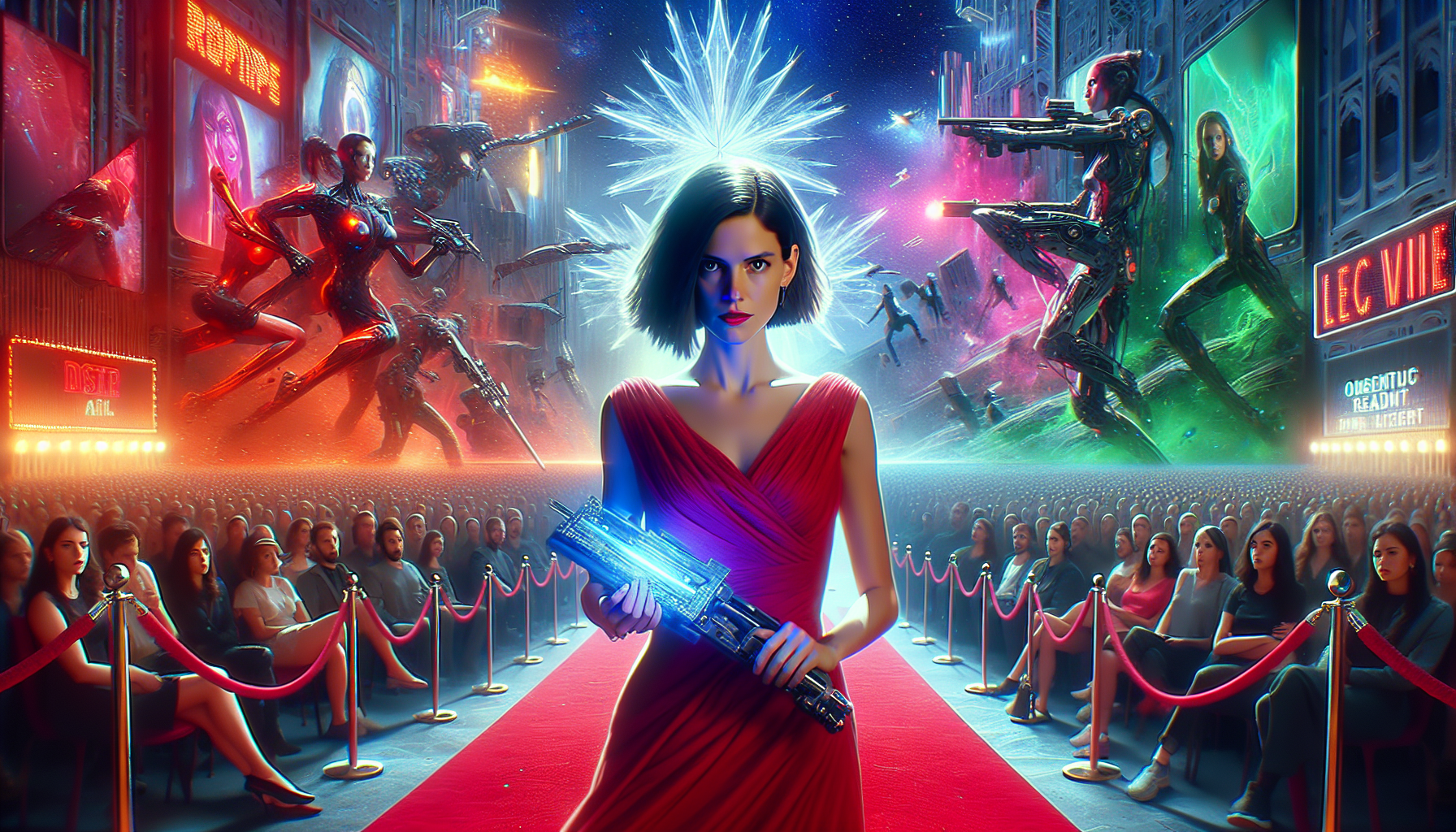Jisoo’s Casting in ‘The Prophet: Omniscient Reader’ Sparks Controversy Over Character Weapon Change
Title: Jisoo's Role in 'The Prophet: Omniscient Reader' Sparks Debate: What Fans Are Saying
Introduction: A Twist in the Plotline?
Imagine eagerly waiting for the film adaptation of your favorite story, only to find one of the beloved characters wielding a weapon you never expected. That's precisely what fans of "The Prophet: Omniscient Reader" are experiencing as the first teaser of the film leaves them both surprised and perplexed. At the heart of this buzz is BLACKPINK's Jisoo, whose portrayal of a cherished character from the web novel has stirred quite the controversy. But why is a change in weaponry causing such a stir?
The Controversial Weapon: From Sword to Gun
In the world of story adaptations, staying true to the source material can be a double-edged sword (pun intended). Fans of "The Prophet: Omniscient Reader" are currently unhappy about Jisoo's character, Lee Ji-hye, trading her iconic sword for a gun. The sword wasn't just for combat; it symbolized her connection to the Maritime War God, a crucial element of the story. For die-hard fans, the sword embodies the character’s essence and her relationship with a powerful celestial sponsor. Altering this detail not only changes how she fights but tweaks her fundamental character dynamics.
The World of 'Omniscient Reader': Story and Significance
To truly grasp the fervor surrounding this adaptation, it's essential to understand the rich narrative of "Omniscient Reader's Viewpoint." This popular web novel follows Kim Dokja, an everyday worker who finds himself thrust into the reality of his favorite fiction, "Three Ways to Survive the Apocalypse." In this world, powerful god-like entities known as Constallations sponsor humans, turning ordinary lives into extraordinary journeys teeming with adventure and supernatural intrigue. Lee Ji-hye’s relationship with her sponsor is central to her storyline, making the switch from a sword to a gun feel like more than just a change of aesthetics.
Fans’ Concerns: More Than Just a Prop
Many fans have voiced their concerns, worried that such a change may ripple through the narrative, undermining fundamental elements of the story. The switch from swordplay to a firearm seems not merely a design choice but a shift that might signal a broader trend in the film's faithfulness to the original tale. A vocal segment of the audience fears that important character and plot dynamics central to the web novel's charm might be altered or downplayed to cater to cinema audiences or for international appeal.
The Business of Adaptation: Artistic Integrity vs. Global Market
The change of weapon could reflect broader business decisions aimed at pulling in a wider audience. Some suggest the film's production is tailoring content for international markets, possibly influenced by catering to premiere audiences outside Korea. This theory highlights the delicate balance filmmakers face between preserving original artistic expressions and making commercially viable global entertainment.
Cultural Divide: Adapting for Different Audiences
The dissatisfaction also brings into focus how adaptations deal with varied cultural contexts and tastes. Korean stories can resonate differently with non-domestic audiences, leading studios to edit original content for broader appeal. While such changes might aim for inclusivity, they run the risk of alienating core fans who cherish the cultural intricacies of the original. Therefore, adapting sources faithfully while broadening audience reach remains a tightrope walk.
Conclusion: To Change or Not to Change?
The controversy around "The Prophet: Omniscient Reader" not only underscores the challenges faced in adapting beloved stories for the screen but also raises broader questions about where creative liberties benefit versus where they betray the source. While anticipation builds for the movie's July 2025 release, fans will continue dissecting every hint and glimpse to align their expectations. Ultimately, will the film honor the essence of its roots while carving a new path for viewers internationally? Only time will tell. What do you think? Is altering core story elements a justified trade for a broader audience appeal, or does it detract from the story's core meaning? Let's start a discussion.

